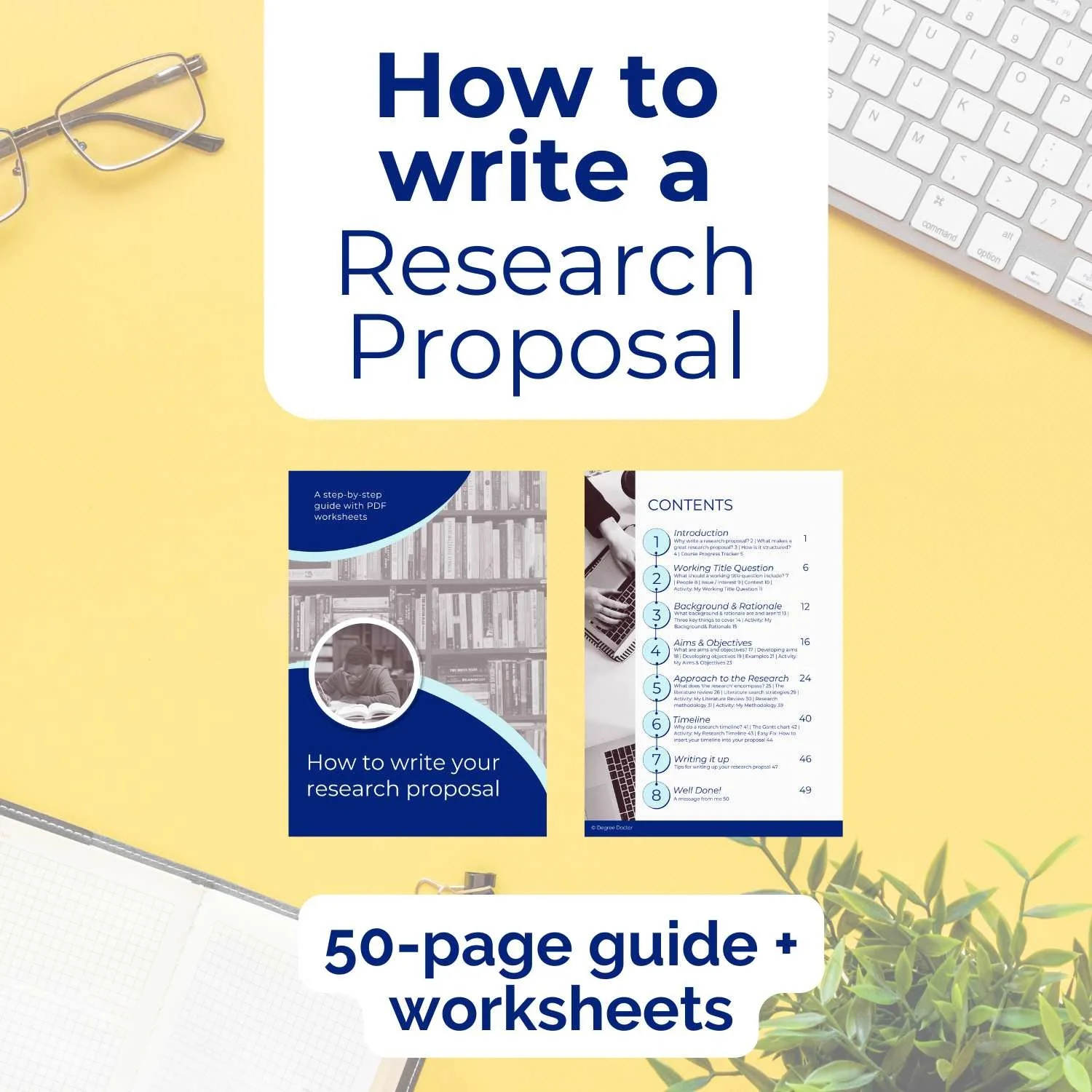How to Write a Winning Research Proposal: Tips and Tricks
In this post, I’ll explore three common mistakes students make when writing research proposals and how to avoid them.
Mistake number one: the title is too broad.
A broad title may seem like a good place to start, but it will not impress the person reading your proposal. Instead, be more specific. Ask yourself questions like who, where, and why. For example, instead of “Men’s experiences of domestic abuse,” you could narrow your focus by asking, which men, where are they located, and why is it important to look at their experiences. This will help you arrive at a more realistic and achievable title or question.
Mistake number two: lack of clarity around access to the sample.
Don’t be vague about how you plan to access your sample. You need to be specific about who is included in the sample, how big or small it is, and how you plan to recruit them. Access is a huge issue and one of the main things that assess how realistic your research ideas are and how likely you are to complete the project you’re proposing to do. If you don’t make a convincing argument that you can access who or what you need to, the person reading your proposal will not be confident that you’ll complete it.
Mistake number three: a half-assed project timeline.
Your project timeline should be well thought-out and realistic. Don’t assume that your supervisors will sort out your access for you or that they will tell you what to do. At this stage in your studies, you should be familiar with the field and well versed in the literature. We want decisive, confident students who are going to be self-starters who know what they want to do, specifically.
Your supervisors are there to supervise you, not to parent you. Make your own decisions and be confident in them. It’s your project, and you need to stand on your own two feet and access participants on your own. However, if your supervisors are able to assist you with access, that’s great, but it’s not something that you should assume.
Summary
In conclusion, writing a research proposal can be a daunting task, but by avoiding these three common mistakes, you can increase your chances of success. Be specific with your title, be clear about how you plan to access your sample, and create a well-thought-out and realistic project timeline. Remember, at this stage in your studies, you should be a decisive and confident student who is a self-starter and knows what you want to do.
